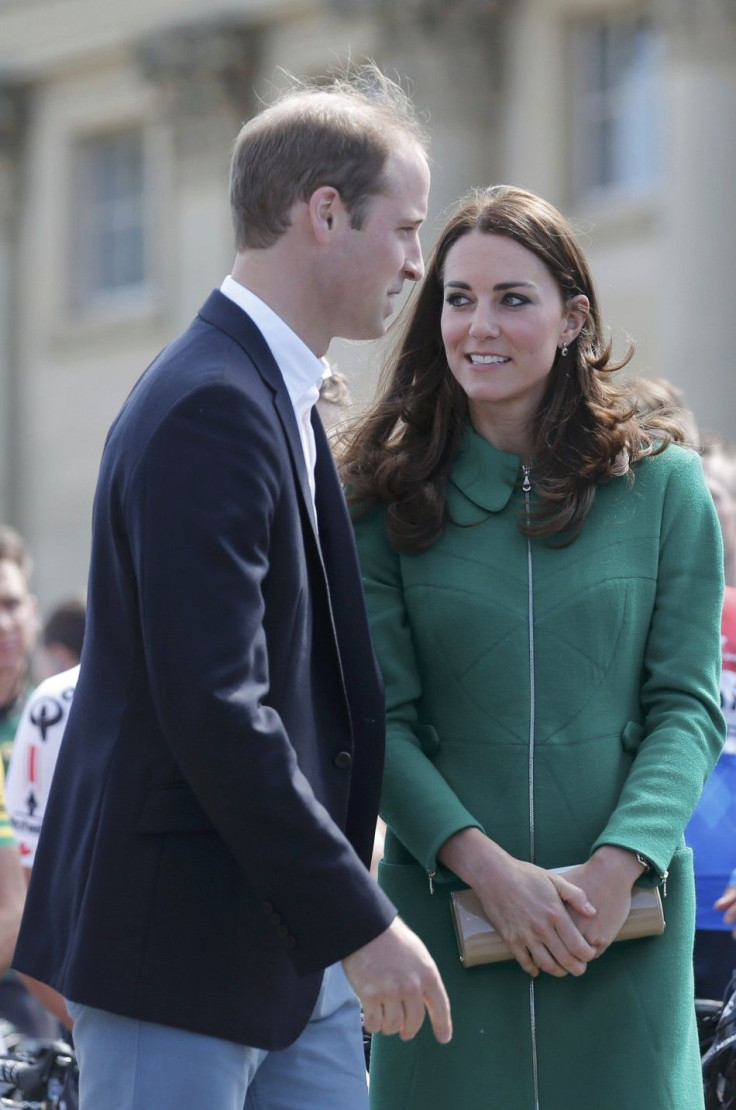Prince William’s Heartfelt World War I Commemorative Speech

Before taking their well-deserved month-long vacation, Prince William and Kate Middleton joined Belgium's King Philippe and Queen Mathilde to mark the 100th anniversary since Britain joined World War I. Attending the World War I centenary events in Belgium's recognition of the Aug. 4, 1914 conflict, the royal couple arrived on Monday looking elegant for the somber event.
Wearing a navy suit, the Duke of Cambridge looked sharp and handsome as he wore the gold and silver Jubilee medals given to him by Queen Elizabeth. Attending the ceremony at the Cointe Inter-allied memorial, William made a heartfelt speech before more than 50 heads of state, including French President Francois Hollande, Belgian Prime Minister Elio du Rupo, German President Joachim Gauc and Spain's King Felipe.
In his speech. The Duke paid tribute to Europe's current unity as he gave his thanks to the Belgian people for their resistance to the invasion a century ago. The country suffered four years of brutal hardships and was one of the first to fall to Germany with the invasion on the morning of Aug. 4, 1914 preventing Britain's declaration of war.
"We are paying tribute today to the courage and dignity of those engaged in the fighting and those who lived in inhuman conditions," said Belgian's King Philippe. "We remember also the cruelty and barbarism, healed as we are of our resentment and of the terrible wounds that affected our families."
The couple is also scheduled to visit Mons Town Hall where they will meet Prince Harry before going to a memorial service at St Symphorien Military Cemetery. The historic graveyard contains 229 British and Commonwealth soldiers and 284 Germans, majority of whom were killed during the first major British World War I battle, the Battle of Mons.
Here is Prince William's World War I commemorative speech taken from E! Online.
"In the summer of 1914, the Austrian writer, Stefan Zveig, was on holiday in Belgium near Ostend. He describes how people from all over Europe were enjoying themselves together, and comments that a great deal of German was spoken because holidaymakers from the Rhineland liked to come to the Belgian beaches," he said in the opening of his speech.
"Just days later, this carefree harmony was shattered by the outbreak of the First World War. During four terrible years, those same Europeans were engulfed by killing and destruction. Among the very first victims were the people of Belgium, whose resistance was as gallant as their suffering was great. The magnificent war memorial where we gather today honors the city of Liège and its people for their courageous resistance in 1914. The memorial-and this ceremony- also honors all Belgians, who fought, suffered and died in the Great War."
"Your great sacrifice and your contribution to eventual victory was pivotal. Belgium's resistance in 1914 allowed the Allies to re-group and draw up the battle lines, which became the infamous trenches. These trenches have left an indelible scar on your land-they speak of the horrors of war but also of your forebears' courage. That courage was shown not just by your Armed Forces but by your civilian populations. I know that in the coming months, you will be commemorating the massacre at Dinan and the burning of the great library at Lervan. Many nations here today, the United Kingdom among them, owe you a great debt of gratitude for your fortitude and resistance."
"This evening, at Saint Symphorien cemetery in Mons, Catherine and I will visit a site which was donated by a Belgian landowner to the German Army so that soldiers from both sides could be buried near where they fell. Belgium's commitment to honor the war dead continues to this day. In Ypres, Belgian volunteers have played the Last Post every night since 1928-except during the Second World War."
"Your Majesties, if I may say so, Belgium's steadfast remembrance of your war dead, and ours, is a great credit to your nation. On behalf of Her Majesty Queen Elizabeth, head of the Commonwealth, thank you for the honor you do us all. In Europe, the transition from war to lasting peace has taken time. Edith Cavell was a British nurse who saved soldiers from each side. On the night before she faced a German firing squad, she said, 'I must have no hatred or bitterness towards anyone.' It took another terrible war to learn the truth of her words, and even today we continue to learn that lesson. The events in Ukraine testify to the fact that instability continues to stalk our continent."
"The peace that we here enjoy together as allies and partners does not simply mean no more bloodshed-it means something deeper than that. The fact that the presidents of Germany and Austria are here today, and that other nations-then enemies-are here too, bears testimony to the power of reconciliation. Not only is war between us unthinkable, but former adversaries have worked together for three generations to spread and entrench democracy, prosperity and the rule of law across Europe, and to promote our shared values around the world."
"We were enemies more than once in the last century, and today we are friends and allies," the future king of England concluded. "We salute those who died to give us our freedom. We will remember them."





















